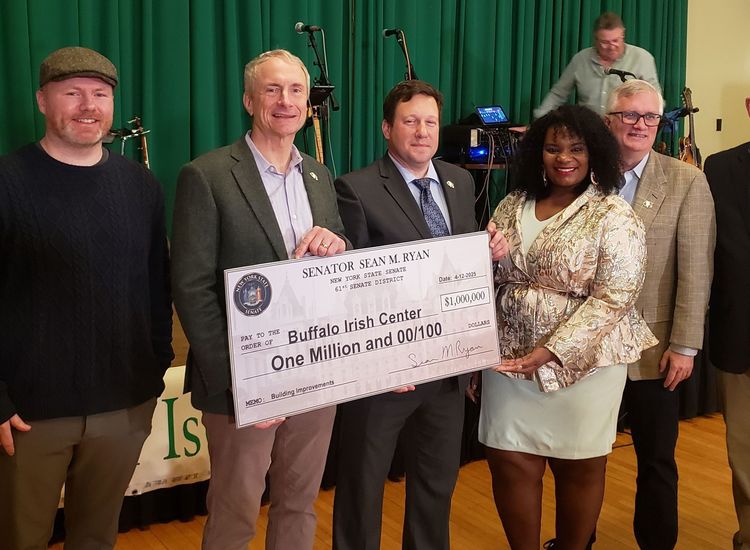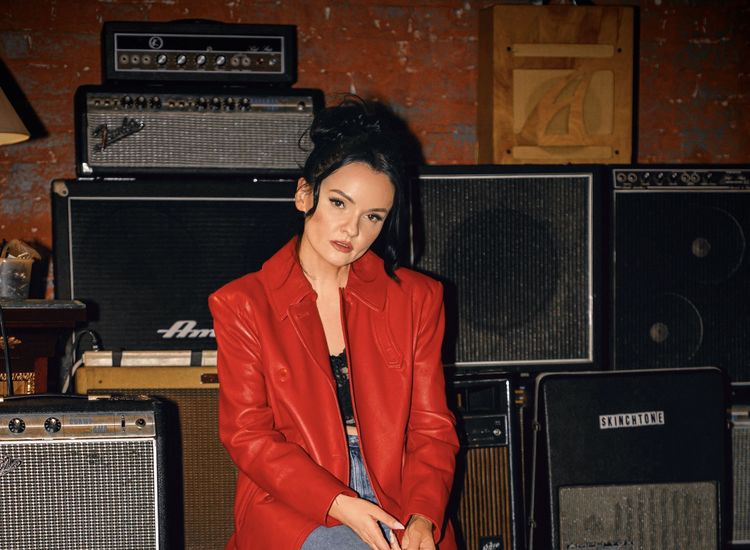Clare-born P.J. Curtis, whose writing about Irish music I've admired since his essay for the stateside release of "The Bothy Band 1975" LP in 1983, called Galway native Sean Tyrrell "the most intensely moving, soulful and talented singer of ballads and traditional songs in Ireland today." Curtis made that assertion in his 1994 book "Notes from the Heart" and wrote from firsthand observation: "I had, of course, seen and heard Sean Tyrrell in noisy pub sessions in County Clare and had thrilled, along with all who listened, to his songs, delivered with great passion laced with a soulful melancholy."
Like many writers who take their profession as seriously as their passion, Curtis tried to elevate Tyrrell's reputation in the minds and ears of public and critics alike. He certainly succeeded in making an impression on Geoff Wallis and Sue Wilson, authors of "The Rough Guide to Irish Music," where their profile of Tyrrell leads with the Curtis quote I led with in this "Ceol" column.
Writers who have honed their craft can sense when they're fashioning quotable sentences. The more emphatic they are, the more quotable they are. Whether agreeing or not, readers think more seriously about the subject of writers' bold contentions.
As much as I respect Curtis's judgment, I was unconvinced of his claim for Tyrrell back then. And I still am. But on "And So the Story Goes," the debut trio recording he recently made with old friends Kevin Glackin on fiddle and Ronan Browne on uilleann pipes, flute, fiddle, and bodhran, Tyrrell, as singer, emerges with more of the luster given to him 17 years ago by Curtis.
The six songs delivered by Tyrrell on this CD confirm Curtis's apt reference to him as "a singer/songwriter in the best bardic tradition." Tyrrell has a voice of craggy integrity and edgy tenderness, and he chooses songs of unflinching honesty and poetic power. In the past he has ably set other writers' verse to music he's composed, and that is true here on two songs: "The Man for Galway" (poem by Charles Lever) and "The Cap and Bells" (poem by William Butler Yeats). Of the latter verse, Yeats said in 1899: "The poem has always meant a great deal to me, though, as is the way with symbolic poems, it has not always meant quite the same thing." The poet within Tyrrell has clearly embraced Yeats's brilliant defiance of a singular meaning, still the grail for literary grinds.
The rhyming, word-salad delight and humorous plot twist of "The Quaker's Meeting" (words by Samuel Lover, music by Tyrrell) must have appealed to the singer's penchant for cleverly constructed narrative songs, while the jaunty, lighthearted musical tincture of Charles Lever's "Mickey Free" carries a sharp rebuke: "And we still might get on without doctors, / If they'd leave this ould Island alone; / If purple men, priests, and tithe-proctors, / Were crammed down the big gun of Athlone."
The two songs most compellingly sung by Tyrrell, however, are "The Skies O'er Ballyroan," credited to Thomas Hodge and Chris Andreetti, and "Dan O'Hara," composed by well-known Mayo-born singer Delia Murphy (1903-1971), Ronan Browne's maternal grandmother.
"The Skies O'er Ballyroan" is an evocative, wistful description of the County Laois village's many attributes, deemed superior to those of Italy's skies and France's shores. It is a song of profound homesickness, with words by Hodge, an Irish immigrant to Chicago, and reminds us that America was seen by many immigrants as relief, not as paradise.
"Dan O'Hara" is a song of palpable emotion and unbearable heartache. In Connemara, the titular O'Hara, his wife, and their eight children have managed to overcome the ravages of 1846-47, but adding windows to his cottage has added an unbearable cost to his rent. The landlord evicts them, causing a downward spiral of misfortune leading to Dan O'Hara's sad separation from his wife and the death by starvation of their children. He winds up in New York City, where he sells matches for cheap on the street and laments: "And soon with God above / I will be with the ones I love, / And I'll find the joys I lost in Connemara." Through his exceptional vocal interpretation, Tyrrell never allows this song to drown in gurgling self-pity. He conveys grimness without overreach, making the song all the more effective.
The two native Dubliners in the trio, Kevin Glackin and Ronan Browne, have been buddies and playing partners of Sean Tyrrell since the early 1980s. The album's instrumental tracks feature Glackin and Browne at their best, playing with and off each other, the fiddle genially jousting with the pipes or flute and vice versa, amassing a dense but detailed sound of irresistible energy and expertise.
I have been an admirer of Kevin Glackin's fiddling since "Northern Lights," his stirring duet album in 1989 with fiddling brother Seamus (Paddy Glackin is their older fiddling brother), and the recording made by Bakerswell, a group formed by Sean Potts that included Kevin. My regard for Ronan Browne's piping is no less than that for Glackin's fiddling. Browne's talents on pipes, flute, and fiddle have stood out in recordings with Cran, Afro Celts, and former Tulla Ceili Band member Peadar O'Loughlin.
Browne and Glackin have often performed as a duo, and they draw on that strength-giving familiarity in "Micho Russell's Jigs," the title they give to a medley of "Mickey Callaghan's / Scartaglen / Dusty Miller / Tom Billy's," nimbly backed by Tyrrell on mandocello and guest Jimmy Fitzgerald on guitar. That is unequivocally a great track, and the tight coil of Glackin's fiddle and Browne's flute and whistle on "The Old Grey Goose" jig is also a marvel to hear.
In his sleeve notes, Browne acknowledges the speed or "frenzied scamper" of their playing in "The Old Bush / My Love Is in America / Trim the Velvet," the last two tunes in "The Cat That Kittled in Jamie's Wig / The Errigal Reel / The Black Mare of Fanad," and, in a different track, "The Glen Road to Carrick." But it's clear the two instrumentalists relish this velocity for the energy and excitement it generates, and in their highly skilled hands, why not?
"And So the Story Goes" is an offhand title for an album where all hands are securely "on." Brace yourself for ferocious playing, along with poignant or pointed balladry and more measured, lyrical instrumentals, including the delicately etched slow air "Paddy's Rambles Through the Park." There's nothing dated about the enduring friendship of Sean Tyrrell, Kevin Glackin, and Ronan Browne at the heart of this superb, long-awaited recording debut by them. What a trio and treat!
To obtain the album (Clo Iar-Chonnacht CICD 185), visit www.cic.ie. Also check out the trio's website: www.tyrrellglackinbrowne.com.










